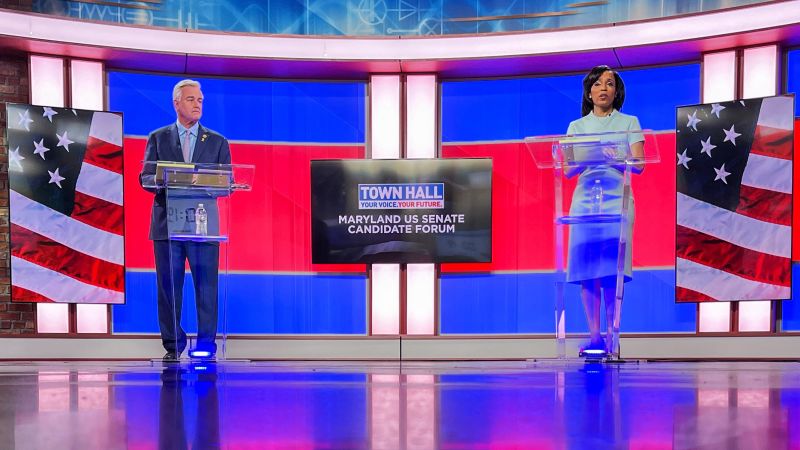The Senate Democratic primary in Maryland is heating up between Angela Alsobrooks, the executive of Prince George’s County, and Democratic Rep. David Trone. Alsobrooks, if elected, could become only the third Black woman ever elected to the Senate, highlighting the potential for historic representation in the state’s congressional delegation. Trone, who has spent about $60 million of his own money on the election, is emphasizing his ability to defeat GOP Gov. Larry Hogan in November to secure the Senate seat.
The primary has divided Congress, with Alsobrooks garnering support from most of the Maryland delegation and Trone receiving backing from key members of House Democratic leadership. While the potential history-making aspect of Alsobrooks’ candidacy is not her central pitch, many of her female supporters recognize the importance of including women’s voices in decision-making roles. However, in a state where the Democratic primary electorate is about 40 to 45% Black, support for the candidates goes beyond just identity politics.
Experience and electability have become key issues in the race, with Trone highlighting his accomplishments in Congress and his ability to work across the aisle. However, some of his campaign messaging has been criticized for echoing tones of misogyny and racism, which have sparked backlash from Black women leaders. Alsobrooks is making her lived experiences, including her work as a domestic violence prosecutor, a point of contrast with Trone, particularly on issues like protecting abortion rights.
Trone’s ability to self-fund his campaign has been a significant advantage, with him emphasizing his humble roots and independence from special interest money. Meanwhile, Alsobrooks has raised a considerable amount of money for her campaign and has faced fundraising challenges that Black women often encounter in political races. Despite Trone’s financial advantage, Alsobrooks’ supporters highlight that his spending hasn’t guaranteed him a win and that his wealth may be a turn-off for some voters who are tired of millionaires and billionaires in office.
For many voters, the primary hinges on who can best represent their interests and achieve tangible results. While the potential for historic representation is significant, the race is ultimately about who voters believe will do the best job. Both Alsobrooks and Trone have their strengths and weaknesses, and the outcome of the primary could have implications for not just Maryland, but also for the broader conversation around representation and diversity in politics. As voters head to the polls, the decision on who will be the Democratic nominee for the Senate race will shape the future of Maryland politics.


